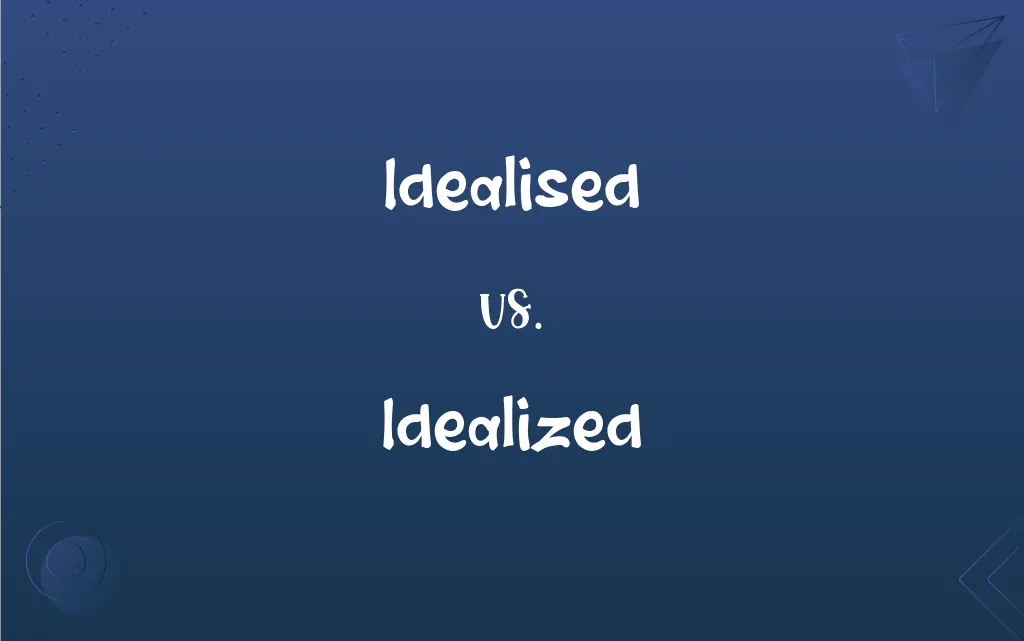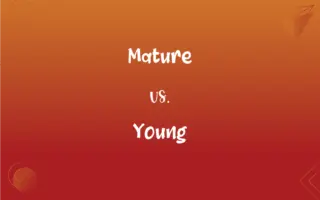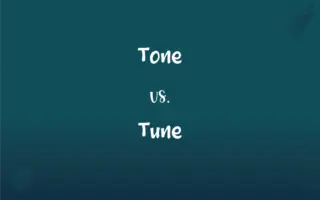Idealised vs. Idealized: What's the Difference?
Edited by Aimie Carlson || By Janet White || Updated on November 19, 2023
"Idealised" and "idealized" are different spellings of the same word, meaning to depict something in a perfect or improved form, often unrealistically so.

Key Differences
"Idealised" and "idealized" both describe the act of envisioning or representing something in a perfect or highly improved form. The distinction between them lies only in regional spelling variations, with "idealised" being the preferred form in British English, while "idealized" is the American English spelling.
These terms are often used in contexts where reality is embellished or exaggerated to reflect perfection. For instance, an "idealised" version of history might overlook flaws and failures, just as an "idealized" version might. Both terms signify a departure from realism towards a more perfect conception.
In literature and art, characters or scenarios can be "idealised" or "idealized" to convey a sense of perfection or to embody certain ideals. This process involves highlighting positive traits and downplaying or omitting flaws, common to both spellings of the word.
The concept of "idealising" or "idealizing" something can also reflect personal or cultural biases, where certain qualities are exaggerated to align with specific ideals or values. This usage underscores the subjective nature of what is considered 'ideal' in various contexts.
Whether one uses "idealised" or "idealized," the implication is that the representation of the subject is not entirely grounded in reality but is instead enhanced to represent an ideal form or concept, often to the point of being impractical or unattainable.
ADVERTISEMENT
Comparison Chart
Spelling
's' is used (idealised)
'z' is used (idealized)
Regional Preference
Preferred in British English
Preferred in American English
Usage in Literature
Often found in British texts
Common in American publications
Pronunciation
Same as idealized
Same as idealised
Meaning
Depicting as perfect or improved, unrealistically
Same meaning: depicting as perfect or improved, unrealistically
ADVERTISEMENT
Idealised and Idealized Definitions
Idealised
To represent in a perfect or flawless manner.
The film idealised rural life as always peaceful and harmonious.
Idealized
To depict something as better or more perfect than it is in reality.
The idealized portrayal of heroes in movies often lacks complexity.
Idealised
To portray in an unrealistic and improbably positive way.
He idealised his childhood, forgetting the difficulties.
Idealized
To create an overly optimistic view of something.
The advertisement idealized the product, ignoring its flaws.
Idealised
To elevate something to an unattainable level of perfection.
Artists often idealised historical figures in their paintings.
Idealized
To envision something in an unrealistically perfect way.
She idealized life in the city, overlooking its downsides.
Idealised
To romanticize or glorify beyond reality.
The novel idealised love, presenting it as a cure-all.
Idealized
To exaggerate the positive attributes of something.
He idealized the past, forgetting its many problems.
Idealised
To conceive or imagine something in its best possible form.
She idealised her future career without considering the challenges.
Idealized
To romanticize or embellish reality in thought or depiction.
Artists sometimes idealize nature in their works, ignoring its harsher aspects.
Idealised
Alternative spelling of idealized
Idealized
To regard or represent as ideal
Students who idealize their professors.
A book that idealizes rustic living.
Idealised
Simple past tense and past participle of idealise
Idealized
To regard or represent something as ideal.
Idealised
Exalted to an ideal perfection or excellence
Idealized
(US) Regarded as ideal.
Idealized
(US) Considered as an ideal form of something.
Idealized
Simple past tense and past participle of idealize
Idealized
Exalted to an ideal perfection or excellence
FAQs
Can idealised views be harmful?
Yes, if they lead to unrealistic expectations or perceptions.
Is idealised used in British English?
Yes, it's the preferred British spelling.
What does idealised mean?
Idealised means portraying something as perfect or better than it is.
Does idealised only apply to positive traits?
Primarily, though it can sometimes encompass idealised flaws.
Can idealized views change over time?
Yes, as cultural and personal perspectives evolve.
Is idealised a positive trait in writing?
It can be, but often it's criticized for lacking realism.
Can history be idealised or idealized?
Yes, often to reflect national or cultural pride.
What does idealized mean?
Idealized also means portraying something in a perfect or improved way.
Can something be too idealized in art?
Yes, leading to a loss of authenticity or realism.
Are idealised and idealized interchangeable?
Yes, depending on the regional spelling conventions.
Is idealized used in American English?
Yes, it's the standard American spelling.
Is it common to idealise/idealize the past?
Yes, often due to nostalgia or selective memory.
Are idealised/idealized portrayals always unrealistic?
Often, but not always; it depends on the context and extent of idealization.
Is there a difference in pronunciation between idealised and idealized?
No, they are pronounced the same.
Do idealised concepts vary across cultures?
Yes, as ideals are influenced by cultural values.
Are there synonyms for idealised/idealized?
Yes, like romanticized, glorified, or exaggerated.
Can idealised/idealized views be corrected?
Yes, through education and exposure to different perspectives.
Does idealised/idealized mean the same as perfect?
Not exactly; it's more about the perception of perfection.
Do idealised characters lack depth?
They can, if their portrayal is overly simplified.
Can technology be idealised/idealized?
Yes, often overlooking potential drawbacks or limitations.
About Author
Written by
Janet WhiteJanet White has been an esteemed writer and blogger for Difference Wiki. Holding a Master's degree in Science and Medical Journalism from the prestigious Boston University, she has consistently demonstrated her expertise and passion for her field. When she's not immersed in her work, Janet relishes her time exercising, delving into a good book, and cherishing moments with friends and family.
Edited by
Aimie CarlsonAimie Carlson, holding a master's degree in English literature, is a fervent English language enthusiast. She lends her writing talents to Difference Wiki, a prominent website that specializes in comparisons, offering readers insightful analyses that both captivate and inform.































































